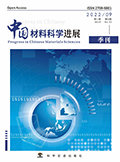

目的: 研究膨润土对混凝土抗溶蚀性能的影响。方法: 采用直接浸泡法, 模拟溶蚀水环境配制氯离子溶液、硫酸根离子溶液, 将试块放入侵蚀溶液中进行溶蚀, 测试了不同膨润土掺量的塑性混凝土在标准养护条件、氯离子溶液浸泡养护、硫酸根离子溶液浸泡养护后的立方体抗压强度, 同基准组作对比, 分析膨润土掺量与在环境水溶蚀后试块的强度关系, 采用SEM扫描电镜对内掺膨润土的细观结构进行了研究, 并对其溶蚀机制进行了探讨。结果: 随着膨润土在胶凝材料中所占比重的增大, 塑性混凝土的立方体抗压强度逐步下降, 在0~30%范围内, 氯离子溶液对混凝土强度的溶蚀程度先减小后增大, 当膨润土掺量为20%时, 溶蚀作用最小; 硫酸根离子溶液对混凝土强度的溶蚀程度持续减小, 当膨润土掺量为30%时, 溶蚀作用最小。结论: 一定掺量的膨润土能有效降低塑性混凝土遭受溶蚀后的强度损失。
Objective: To study the effect of bentonite on the corrosion resistance of concrete. Methods: Using the direct immersion method, the chloride ion solution and sulphate ion solution were prepared to simulate the corrosive water environment, and the test blocks were placed in the corrosive solution for corrosion. The cube compressive strength of plastic concrete with different bentonite admixtures was tested under standard curing conditions, after immersion in chloride ion solution and after immersion insulfate ion solution immersion curing. The relationship between the amount of bentonite admixture and the strength of the test block after dissolution in ambient water was analyzed in comparison with the reference group. The microstructure of the internally doped bentonite was studied using SEM (scanning electron microscopy) , and its corrosion mechanism was discussed. Results: As the proportion of bentonite in the cementitious material increases, the cube compressive strength of plastic concrete gradually decreases. In the range of 0~30%, the corrosion degree of chloride ion solution on the concrete strength first decreases and then increases. When the content of bentonite is 20%, the corrosion effect is the smallest; the effect of corrosion of sulfate ion solution on concrete strength continues to decrease, and is minimized at 30%. Conclusion: A certain amount of bentonite can effectively reduce the strength loss of plastic concrete after corrosion.